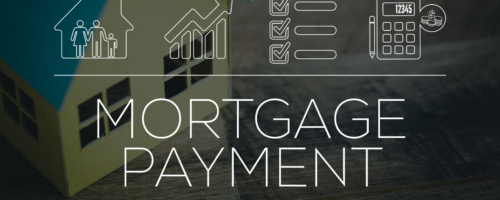Published on MBA Newslink.
Delinquency rates for some loans are rising, including mortgages. In fact, the Mortgage Bankers Association (MBA) recently reported that the delinquency rate for mortgage loans on one-to-four-unit residential properties increased to a seasonally adjusted rate of 3.88% of all loans outstanding at the end of the fourth quarter of 2023.
Consumers are already feeling cash strapped. Total household debt skyrocketed to $17 trillion while the savings rate continues to dwindle. Meanwhile, 43 million Americans had to begin repaying on student loans at the end of last year, which meant an additional $500 payment taken from their paychecks. Many say they simply can’t afford it as inflation remains high.
Additionally, the unemployment rate is starting to be affected. In fact, January saw the second-highest layoff total and the lowest planned hiring level since 2009. With weakening employment conditions, this could lead to more borrowers falling behind on their payments, or worse, foreclosures.
Despite these challenges, home ownership is still revered as the American Dream and most believe it has the potential to create generational wealth. However, if delinquencies persist, this won’t be the case for many individuals and lenders and servicers could experience serious trouble ahead–and also down the road.
How Lenders and Servicers Can Help Borrowers Avoid Delinquencies
There are solutions to help minimize delinquencies that affect loan portfolios and better engage borrowers. It starts with empowering borrowers and providing them with greater payment flexibility.
To help borrowers, lenders and servicers can consider offering smart financial wellness tools with a digital user experience that allows borrowers to schedule and automate loan payments that sync directly with their payday. Borrowers can make flexible, incremental payments by taking a single monthly loan payment and dividing it into two, three or four debits throughout the month, and choosing to sync with their payday.
This not only eliminates monthly payment shock and helps borrowers meet the obligations of their loans with less of a struggle, but it can also potentially help them accelerate payments to principal. Using this approach, borrowers can reduce the likelihood of defaulting on a loan and paying late fees and can potentially pay off their mortgage and other loans years faster. In effect, lenders and servicers can help users build generational wealth by assisting with the management of their loan payments and saving thousands of dollars in interest over the life of a loan.
This can be incredibly impactful as economic uncertainty persists. Overall, it’s a winning strategy for both borrowers and lenders.
Accommodate Any Borrower Payment Preference
Servicers should also consider adding debit cards for mortgage payments with more payment options through SMS, email or their borrower portal or call center.
Not only does this better meet the needs of today’s borrowers, but there is tremendous value for servicers. These organizations can reduce the costs associated with non-digital payments by as much as 50% and reduce call center volume by up to 20%. Servicers can also enable real-time cash collection via recurring or one-time text/email/phone.
For servicers who have struggled to enroll borrowers into digital payments, teams can create campaigns to convert more borrowers. They can also engage in proactive loss mitigation communication and provide automated SMS alerts based on specific triggers, potentially helping borrowers avoid late fees or delinquency.
With delinquency rates on the rise, borrowers are struggling to make payments on time and may soon become at risk for foreclosure. Fortunately, lenders and servicers are in a position to help lessen the economic impact. By leveraging smart financial wellness tools that allow borrowers to sync and automate mortgage payments with their payday and by accommodating wider and more modern payment options, they can help borrowers make payments with less struggle and stress. By extending this approach to savings, lenders can also help prepare consumers for homeownership. The value is exponential.
***Brian Gunn is Chief Revenue Officer of EarnUp, a financial wellness fintech company. EarnUp can be offered as a suite, individual components or special programs. Credit unions can see an immediate, measurable impact that results in high satisfaction rates. It is appropriate for all ages, levels of financial literacy and life stage.***










